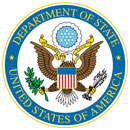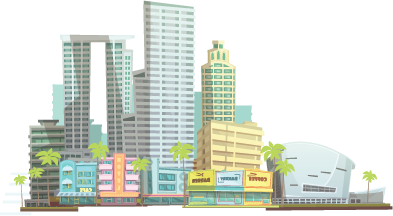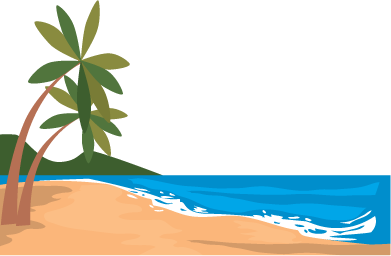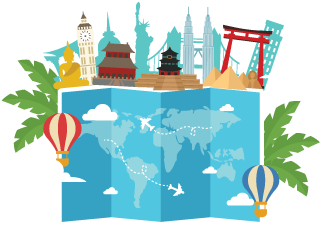-
Capital:
Reykjavík
-
Currency:
Icelandic króna
-
Time zone:
UTC+0 (WET)
-
Driving side:
Right
-
Country calling code:
-
Language(s):
Icelandic
Iceland: An Overview
Iceland is one of a few countries that are part of the Schengen Zone, but not a member of the EU. A Nordic island nation floating boldly where the North Atlantic and the Arctic ocean meet, it is defined by its startling geographical contrast, and is known as the land of “fire and ice.” It is home to a few of the most highly active volcanos in the world and to the most towering glaciers in Europe. Rugged beauty beckons travelers for summer pleasures and winter activities alike. Travelers are beguiled by Icelandic people who are affable and welcoming.
Travel Documents
Your passport must be valid for at least three months beyond your planned date of departure from the Schengen area. You must have at least one blank page for stamps in your passport. If your stay is beyond 90 days, you will need a Travel Visa. If you are a citizen of and ETIAS-eligible country, you will need an approved ETIAS to travel to Iceland beginning in 2021. Learn more about the application process and sign up for ETIAS alerts to get the latest news.
Be sure to make photo copies of all your travel documents to take with you on your trip. It also makes sense to leave copies with a family member or friend back home.

Iceland : An Overview
Laufásvegur 21
101 Reykjavík
Tel: (354) 595 2200
Web site: https://fi.usembassy.gov/

Emergency Iceland Telephone Numbers
| Police: |
112
|
|---|---|
| Ambulance: |
112
|
| Fire and Rescue: |
112
|
| European Union's universal emergency number: |
112 (112 is the equivalent to 911 in the US. Dialing 911 in Iceland automatically redirects to 112)
|
Where to Go
-

Cities and Villages
Reyvalik, Iceland’s capitol is a coastal city regarded for its lively music scene and pedestrian friendly vibe. Stroll the picturesque harbor, discover museums—like the Viking Saga Museum—soak in thermal swimming pools and dine on decidedly different local cuisine. Just a short drive from Keflavik International Airport, the city offers a diverse mix of accommodation for all styles and budgets. Húsavík in the northeast is a premier tourist draw for its breathtaking whale watching and proximity to an abundance of summer and winter hiking trails.
-

Aurora Borealis
Iceland is home to some of the most fantastical viewing of Aurora Borealis (Northern Lights). This naturally occurring phenom is an outer worldly show put on by nature between September and mid-April. Sightseeing trips are planned around this sky show. Premier viewing locations change based on weather and clear skies; a tour with a guide, by car or by boat, will ensure the best viewing. Hotels offer Northern Lights wake-up amenity. If the lights appear, they will let you know!
-

Ring Road & Golden Circle
Iceland’s Ring Road is more than 800 miles and offers a scenic bounty, no matter how much or little of it you choose to explore. The road connects to all major cities and towns and is laden with breathtaking beauty. From fjords and waterfalls to glaciers, geysers, magnificent mountains, to rugged weathered coastlines, and beaches with crashing waves and black sand beaches, Ring Road offers a taste of roughhewn nature at its most dramatic. Start in the south and travel counter-clockwise to make your way from tourist crowds to secluded splendor. One highlight is Blue Lagoon; the most popular geothermal spa in Iceland. The Golden Circle is a must do day trip that circles through some of the most incredible natural wonders in Iceland. The active Geysir Hot Spring Area has boiling mud pits and bursting geysers. Along the south are the Golden Waterfalls, Gullfoss, where following a path brings visitors to an immense two-tiered waterfall. The view in winter is that of a shimmering ice spectacular and on sunny days hundreds of rainbows dance in the cloudy veils of spray.
-

Neighboring Countries
Iceland’s closest neighbors are Greenland to the west across the North Atlantic and Norway, Sweden, Denmark to the east across the Norwegian Sea. Iceland joined the Schengen Zone in 1999. Iceland and each of these countries, except Greenland, are in the Schengen Area and will require ETIAS approval beginning January 2021.
Travels Tips
ELECTRICAL OUTLETS AND ADAPTERS FOR US PRODUCTS
Iceland uses C, & F Plugs. You will need an adapter and maybe a transformer to use products made for the US electrical grid. Iceland runs on a 230 (220) volts, 50 hertz AC current, while US runs on 120 (110) volts and a frequency of 60 Hz AC current. Many American products are able to run on 230 (220) volts, 50 hertz AC current. You need to check your electrical product to make sure it is labeled "dual voltage" before you plug it in, otherwise you may burn out the components rendering it useless. Learn more about the different European plugs and currents here.
PICKPOCKETS AND THEFT
Nearly all crimes suffered by tourists in Iceland are nonviolent and avoidable, however you should be prepared for pickpockets.
- Being vigilant is your best friend when you are in high theft areas: train stations, trains, city buses, subways and open air shopping areas.
- Store important documents, money and phones in zippered or buttoned pockets, specialized travel day bags or a money belt.
- You should never leave your bags unattended! Make sure you can see them at all times. Better yet, you should keep in physical contact with your bags in public places.
MOBILE PHONES
First, be sure to check that your phone will work in Iceland. The easiest way to find out is to check with your mobile phone service provider. You can also find out if your service provider offers international plans for Iceland. We recommend signing up for an international plan if you plan on using your smart phone to connect to the internet or use the travel apps you may have installed on your phone. If you decide not to sign up for an international calling and data plan, costs can add up very quickly!
Free WI-FI can be easy to access, but can be very slow or not available in the countryside. Sign up for a Virtual Private Network (VPN) services to secure your phone, tablet or computer when using public Wi-Fi networks. This prevents hackers from accessing your device when using free Wi-Fi.
EXCHANGING CURRENCY IN ICELAND
The most important thing you should understand is how exchange rates work. The Icelandic króna usually has a higher exchange rate compared to the US dollar. So if you want to get 100 Icelandic króna and the exchange rate is $1.10 for one Icelandic króna, it will cost you 110 dollars to get 100 Icelandic króna. There are many currency conversion apps you can down load to your smart phone to get up-to-date exchange rates.
Many people like to get Icelandic króna through their bank before they leave for their trip. Check out what fees the bank charges for this service. Different banks have different fees. These fees can be expensive, so it pays to shop around.
Iceland banks can also charge high fees to exchange money. You best bet is to use your ATM card with an established bank to get local currency.
DEBIT CARDS AND ATMS
First, make sure that your ATM card can be used internationally. Second, see what your bank charges for international ATM fees. Third, see what is the maximum amount you can withdraw each day. While there are fees associated with using an ATM card, they are usually much less than the fees charged by Iceland banks and currency exchange companies. ATM fees are a flat fee not a percentage. So when you are withdrawing money using your ATM card, take out the maximum amount to reduce amount of ATM fees you will incur. Also it is a good idea to use bank ATMs instead of third party ATMs, which can charge higher fees.
CASH VS CREDIT CARDS
Using local cash is key. Some businesses do not accept credit cards and many businesses charge a higher price when using a credit card due to the credit card fee they pay to the credit card company. Many businesses will take US dollars, but then you will need to figure out the exchange rate to ensure you are being charged the correct amount and receiving the correct change. Having smaller bills is better than large bills. Also remember to keep your cash secure in pickpocket proof pockets or a money belt.
US credit cards are widely accepted across Iceland. Just in case, check with bank to be sure your credit card will work in Iceland. Before you leave on your trip, sign up for a credit card that has no foreign transaction fees. If you don’t, you may be in for a surprise when you get your credit card statement that contains lots of foreign transactions and currency conversion fees.
It makes sense to use a credit card for hotels, car rentals, upscale businesses and restaurants. Limit the number of credit cards you take with you. Bring one back up credit card in addition to the main card you intend to use. Be sure to contact your credit card company and let them know the dates you will be traveling abroad.
TIPPING IN ICELAND
Generally speaking, if someone in the service industry provides great service for you, a tip of a couple of Icelandic króna is acceptable, but not required. Nearly all bills you get will have the tip already included. Tips are not expected in Iceland.
Medical Information
Here’s the good news: most of Europe, including Iceland, has a universal health care system that takes care of everyone – including foreigners. If you need healthcare due to illness or injury while traveling in Iceland, you won’t have to worry about getting treated. There will be out-of-pocket costs, but those are generally reimbursable depending on your health insurance.
IMPORTANT HEALTHCARE HINTS
- Pack enough of any prescription medications for the length of your stay, in their labeled, original containers. It is smart to add a few more pills than you need, just in case you stay longer.
- Bring a small first aid kit with over-the-counter necessities.
- In an emergency call 112, that’s the “911” in Europe.
- If you have a non-emergency health issue, go to the nearest pharmacy first. Iceland pharmacists can actually diagnose and prescribe medications for minor issues like sore throats, sinus and stomach issues and minor aches and pains.
- If the pharmacist can’t help you, go to a clinic. They’re much like our stateside urgent care clinics, and providers can order any tests you might need like x-rays.
- Ask for a House Call. Your hotel will most likely be able to have a physician come to your room if need be.
- Most embassies and consulates have lists of physicians and hospitals in major cities. Go on the U.S. Embassy’s site, choose your destination and look under U.S. Citizens Services section.

